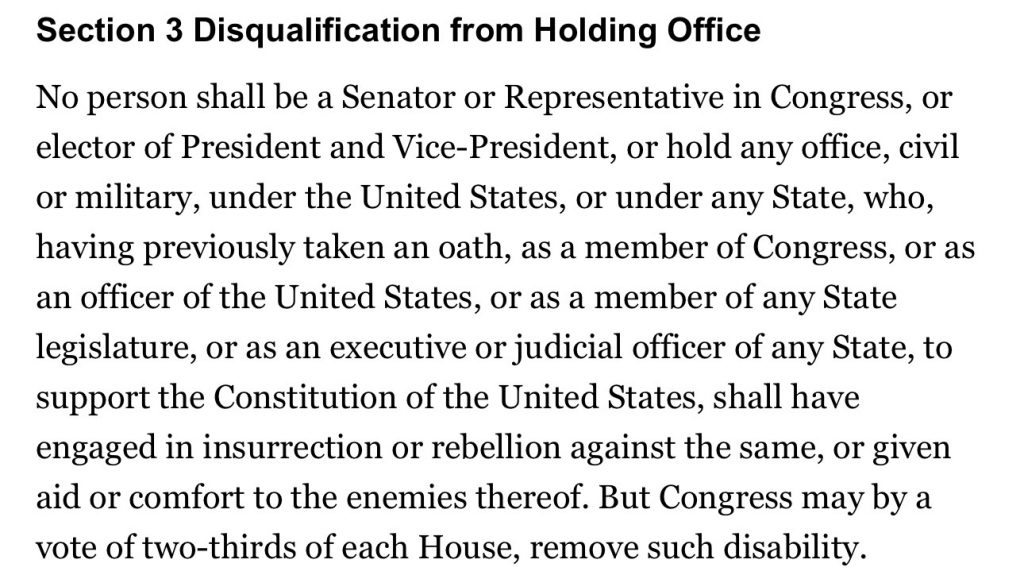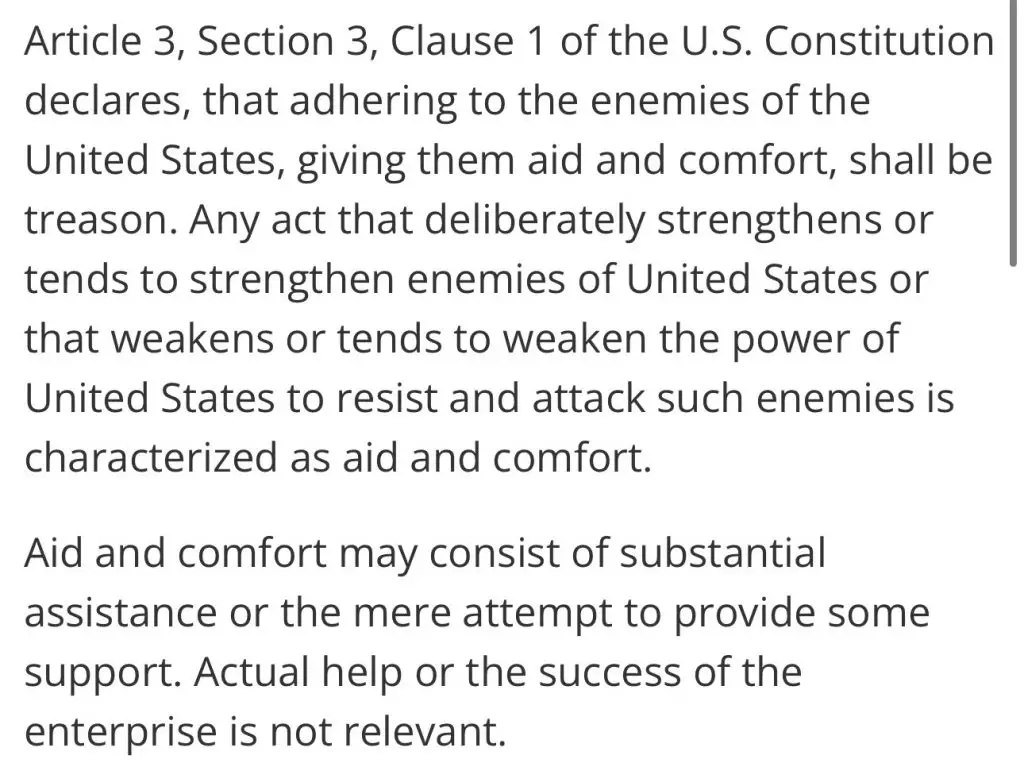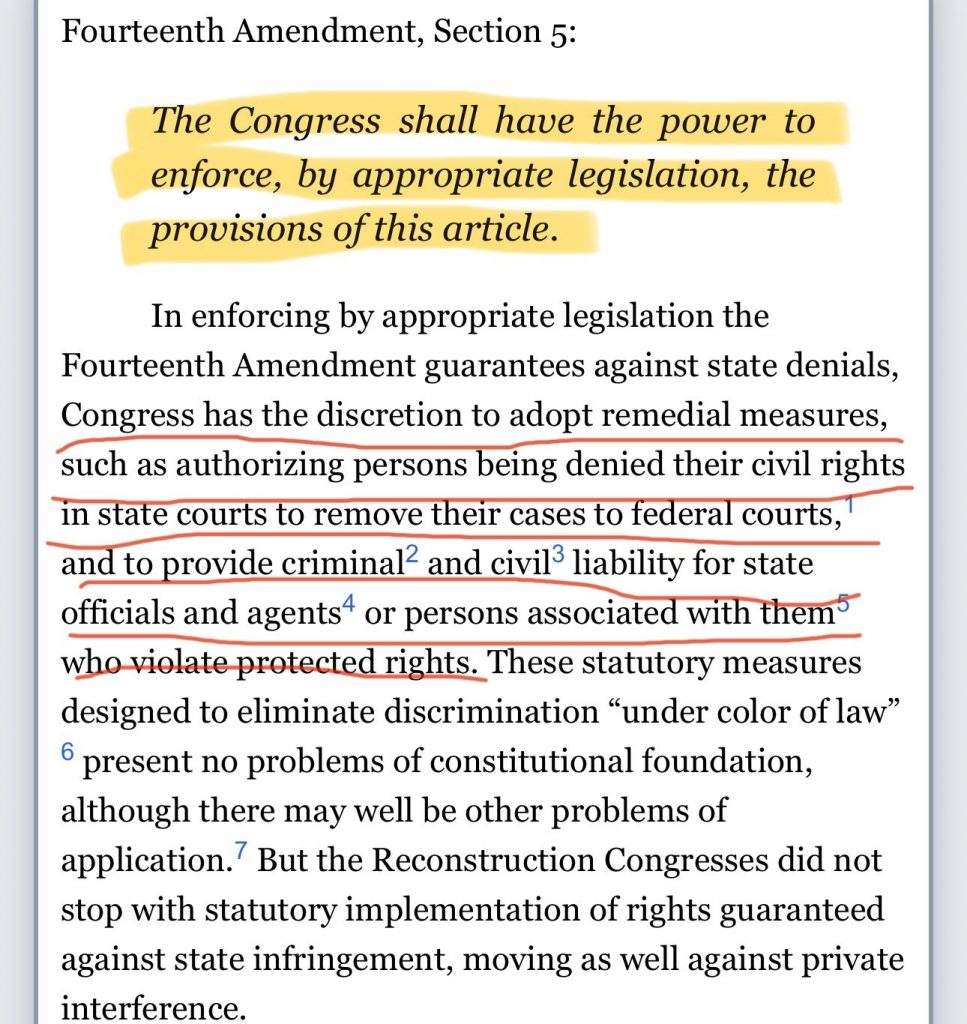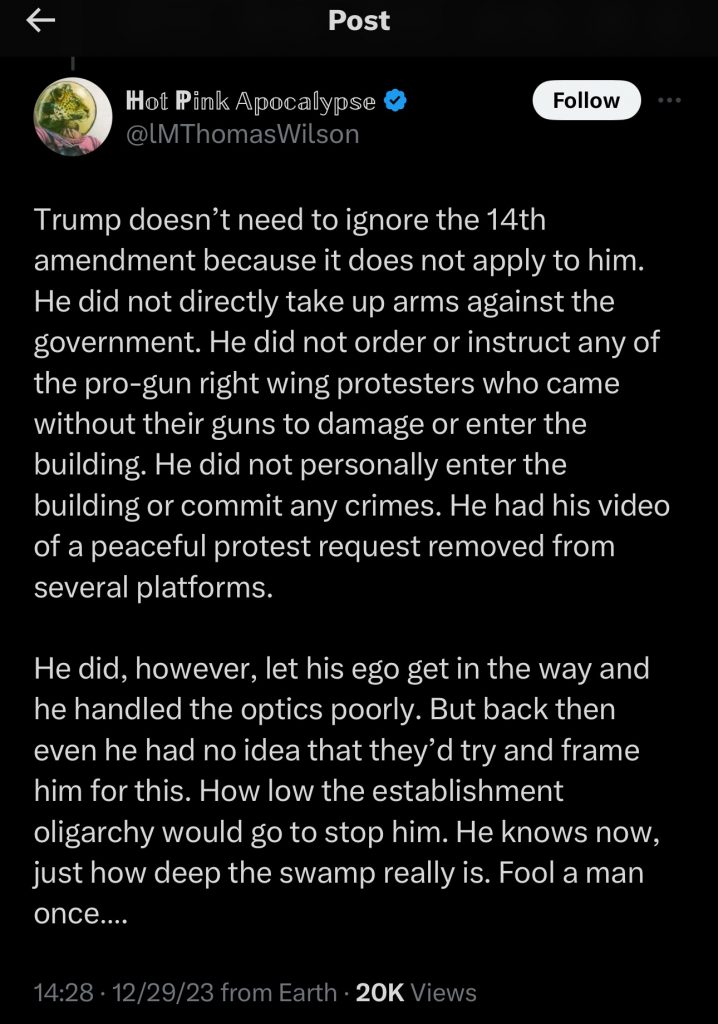Insurrection (Part 1): Donald Trump and the 14th Amendment, Section 3

People uprising against the Lebanese parliament surrounded by teargas by Scopio from Noun Project (CC BY-NC-ND 2.0)
By Shawn B
Browsing the interwebs on the social media platform X, formerly known as Twitter, you tend to find explosive, and unfortunately oftentimes violent opinions on a range of topics. Since this is election year, once can guess that the atmosphere is highly politically charged – both online and offline. One such conversation I came across was regarding the recent Colorado Supreme Court ruling which removed former President Donald Trump (DJT) from the state’s Primary ballots. Of course, the arguments are mostly opinionated, with which I do not a bone of contention. I write opinions, of course, so squarely in my ball park, but I try to back them with facts and informed interpretation.
“Trump doesn’t need to ignore the 14th amendment because it does not apply to him. He did not directly take up arms against the government. He did not order or instruct any of the pro-gun right wing protesters who came without their guns to damage or enter the building. He did not personally enter the building or commit any crimes. He had his video of a peaceful protest request removed from several platforms.
Post by user “Hot Pink Apocalypse” (@lMThomasWilson)
He did, however, let his ego get in the way and he handled the optics poorly. But back then even he had no idea that they’d try and frame him for this. How low the establishment oligarchy would go to stop him. He knows now, just how deep the swamp really is. Fool a man once ….”
He also proceeded to ask “Section 5 of the 14th grants Congress the sole power to enforce the 14th through legislation. When did Congress grant the states the power to enforce or adjudicate the 14th?” Let’s explore this, shall we?
The 14th Amendment, Section 3 (14/3) does not require one to directly take up arms against the government; nor order or instruct; nor personally enter the building to commit crimes. Let’s be frank here, if it were this specific, our society would likely be a lot less civilized. Obviously the framers would not have been able to perceive, let alone document every perceivable way one can turn against the US and subsequently write it down. Many have not even seen the Constitution, let alone read it – as short as it is. If the framers did as Hot Pink Apocalypse suggests, it would be a document hundreds of thousands of pages long. But let’s get out of literal territory here. What it does say is if one has “given aid or comfort to …” he’s also ineligible. You don’t have to look too far to see many of DJT’s Tweets/posts and Truths about his support for the insurrectionists on January 6.


But what is aid and comfort? Per the Constitution, it’s “substantial assistance or the mere attempt to provide support.” It specifically goes on to call out that “actual help or success of the enterprise is not relevant.” In other words, he didn’t have to have personally done anything and he certainly didn’t have to have succeeded in his attempt to help. Just the mere fact he attempted to support – by inciting, by encouraging, and by refusing to diffuse – means he met this very low bar.
A bigger issue I saw with this perspective was the interpretation of the word “enforce”. Hot Pink Apocalypse clearly read the plain text but had a limited or no understanding of it’s legal application. “Enforce”, in this legal context, means to ensure compliance with existing law – in this case, the Constitution.
The 14th is self-executing. The rights are conveyed without intervention. By enforce, the 14th Amendment, Section 5 (14/5) vests Congress with the responsibility to ensure State actions are executed in compliance with the existing law – specifically by providing means of remedies and accountability. For example, the 14th Amendment, Section 1 (14/1) gives you the right to Citizenship and due process, among other things. Whether Congress legislated the intricacies of citizenship is irrelevant, because 14/1 conveys it as it is earned. Congress’ job is to give the means to track and prove citizenship or to ensure, by legislation, that due process is afforded when violated. It does not mean you don’t get to have due process because Congress is in a partisan lockdown and can’t agree on matters important to the people who elected them. Simply put, you are entitled to due process whether Congress legislated it or not.
In the 14th Amendment, Section 2 (14/2), we are entitled to representation in Congress. Congress’ job is to figure out how much each state gets and enforce that. If Congress didn’t figure this out, it would not remove the fact (our right) that we are still entitled to representation. This is why we had a revolution hundreds of years ago – the very revolution that made America America. 14/3 outlines disqualifying factors for holding office. Regardless of whether Congress has legislated, the provision therein either qualifies or disqualified you from holding office. It does not require any more Congressional intervention (enforcement) to qualify based on the clause. The same is true for the age, citizenship and residency requirements outlined in other articles of the Constitution.
The Self-executing portion: If you below age 35, you are disqualified. If you are not a natural born citizen, you are disqualified. If you commit insurrection, you are disqualified. Enforcement means Congress remedies wrongs against you.
The enforcement portion: If you are over 35 and a State says you can’t run for President due to your age, Congress comes in and enforces the standard saying you are over age 35 – you qualify. If you were born overseas and a state says you cant run for President, congress comes in and enforces saying you were born overseas to parents who were US citizens when you were conceived – you qualify. That’s the enforcement portion.

You don’t need to wait for Congress to certify you to run for office nor do you need them to decertify you if you don’t meet the requirement. This would defeat the checks and balances the framers included. In conclusion, the rights in 14A are inherent with no need for Congress to legislate in order for you to be entitled to them (whether it be a qualifier or disqualifier). Rather, Congress’ job is to “enforce” them in accordance with how they are designed in the Constitution.









